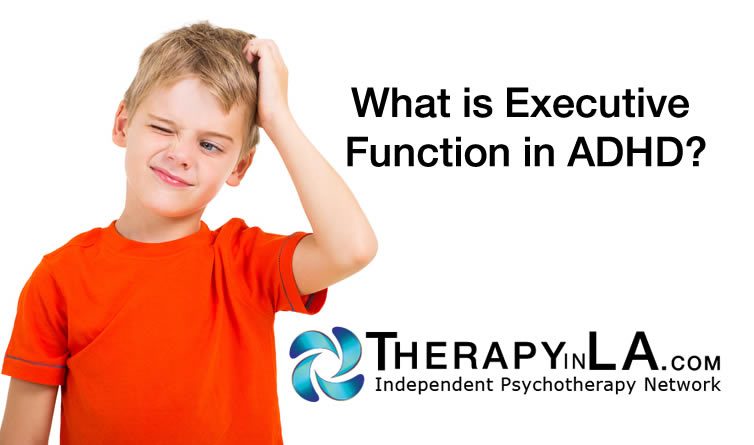What is Executive Function in ADHD?
What is Executive Function in ADHD?
A more in-depth view of ADHD considers “executive functions”, in addition to issues of attention/concentration, hyperactivity, and impulsive behavior. Executive functions “organize thoughts and activities, prioritizes tasks, manages time efficiently, and makes decisions”. These are skills that help us to work successfully on projects with planning, structure, and smaller tasks that move the project to completion. Russell Barkley, Ph.D. is a renowned expert in ADHD (https://www.attitudemg.com/7-executive-function-deficits-linked-to-adhd/ ).
Skipping over the neurology of the ADHD brain, which is in the above link, there are seven executive functions:
- Self-awareness. Attention to our own thoughts, feelings and perceptions.
- Being able to restrain ourselves and avoid impulsive behavior that can be problematic.
- Non-verbal working memory. Remembering things in the form of visual images, being able to picture things mentally.
- Verbal working memory. Internal speech, how we speak to ourselves within our thoughts.
- Emotional self-regulation. Using words, images, and self-awareness to understand and process our emotions, so that we maintain more self-control and understanding.
- Self-motivation. To direct our self to complete a task when there is no immediate external factors or consequences.
- Planning and problem solving. How we work with information in our minds to develop new ways of doing something. We can take something apart mentally and re-arrange the pieces in different ways, to plan a solution to a challenge.
Anyone with ADHD will have trouble with all or most of these functions. Memory issues will lead to distractibility, for example. Emotional self-regulation will prompt impulsive behavior and/or emotional outbursts perhaps. In a person without ADHD, it may take until someone is close to 30 years old to fully develop planning and problem solving; it’s a developmental process that takes many years. Thus, individuals with ADHD will have difficulties that make them seem “immature” or younger than their chronological age, since their development is in fact delayed or incomplete. This is not an issue of a child being “lazy”, or mean-spirited, or “bad”. Many of these kids are very bright, talented, and kind-hearted when their ADHD is not impacting their interactions.
Such difficulties often become apparent early in elementary school, when expectations of a child begin to rachet up; with some children it is a question even earlier. With professional help – evaluation to assess for strengths and weaknesses – assistance can be available in terms of treatment, medication or alternatives to medication, and school accommodations. Many of these issues have been discussed in other blogs and articles on our website, if you look at ADHD under the articles heading.
Alan M. Solomon, Ph.D. is a clinical psychologist in private practice in Torrance, CA. A member of the Independent Psychotherapy Network, he can be reached at dralanms@gmail.com or 310 539-2772.
Copyright 2019 by Alan M. Solomon, Ph.D.

